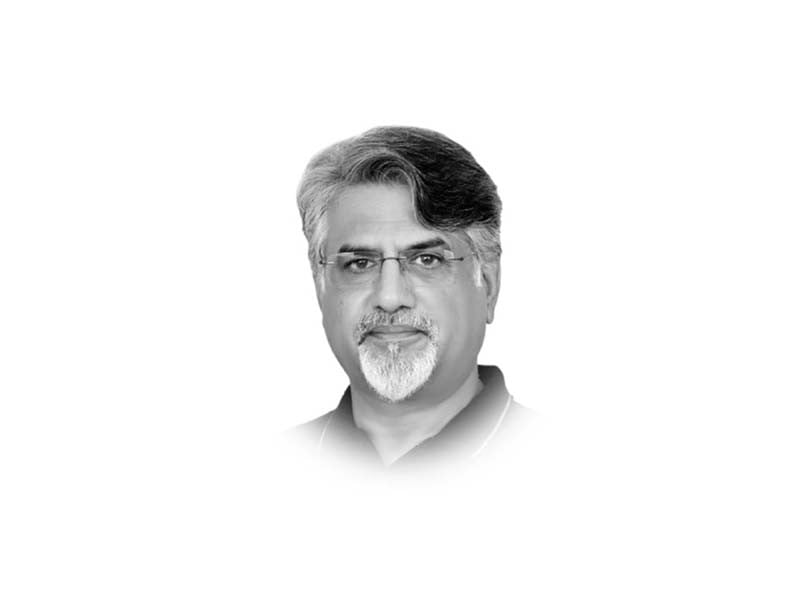One of the big assumptions today in international relations is that with the coming of President Donald Trump in the White House, the international order will not remain the same. As a consequence of this development, how the international order will change and what shape it will take in the coming years are two of the most critical questions being asked today. There are many pressing problems that Pakistan as a state face and there are many questions that we need to ask ourselves and more importantly come up with the right answers too. It is under this spirit that I am raising one important question about balancing our foreign policy. Do we have an option? Given the changing environment, we alternatively look at the other two great powers — China and Russia. What I propose today has limited evidence but nevertheless it is a starting point for further discussion and debate on the subject. I propose a trilateral alliance between China, Russia and Pakistan in the three-dimensional areas of environment, partnership and order.
I believe such an alliance would lead to consolidation of peace and security in the Asia-Pacific region and also the adjoining western Pacific Ocean. The maritime part of the Indo-Pacific region spanning the Indian and Pacific oceans is likely to become a significant part of geopolitics and geopolitical strategies and geopolitical tensions in the 21st Century. It is not only the rise of China and its developing greater influence but also the greater prominence of Russia in the context of the ‘last frontier’ — the Arctic — that the importance of this alliance is likely to achieve a much greater significance.
The American pivot Asia policy is bringing American influence and interest in the region and these interests are built on American current narrative of dividing the world into pro-China and anti-China blocs. But realistically a greater part of the world is not ready to accept China as an American-declared geopolitical threat. Pakistan’s strategic importance and relevance in the alliance stands out from the point of view of regional security, the access it provides to the Indian ocean and the functioning of the future international system under the order of multipolarity. The conflict in Ukraine and the likely conflict between China and Taiwan are big American worries. Will the US be able to meet its security commitments and achieve its political goals through means of force simultaneously on three fronts – Europe, Asia-Pacific, and Middle East? When compared with the US, Russia does not harbour any grand geopolitical objectives or global ambitions. Russia can at best be a regional and limited threat to one part of the Europe at a time — the Black Sea region, Central Europe, the Baltic or the High North — but not all of them simultaneously. To broadly understand the likely future strategic environment, it is suggested that all three countries should formulate a policy group or organisation with a framework of wider strategic, political, economic and security discussions. Such an initiative can later take the form of more formal structures for the regional environment of collective defence, interdependent economy and cooperative security.
Pakistan can perform the important role of providing the maritime power projection in the Asia-Pacific region to both China and Russia. Creating and preserving strategic balance in the region can help build the environment under which an alternative order under the Sino-Russian leadership can be constructed in the region. Eventually it is visualised that more and more countries would join the alliance to build a ring of security around the Asia-Pacific as a counterbalance to any emerging threats. From the security point of view more and more countries can rely on standardising their main weapon systems with those of the other two great powers in order to facilitate maintenance, spare parts supply, joint procurement, training support, etc. The environmental aspect of alliance dictates the priority to regionalism as a key component of managing change.
The Order dimension of this alliance would see Pakistan playing a very active role in creation of a regional order. Some of the strategic ends that this alliance must seek to achieve include the dominance and control of Indian Ocean, alliance’s military integration and alliance’s nuclear posture. Much of the order in the region during the bipolar world had its roots in the European colonisation. Many countries still feel the effect of this colonisation and if they have freed themselves physically from the western colonisation, they have not been able to do so politically and economically as many of them remain part of the international system driven by the western order of liberal internationalism. American hypocritical policies, its unconditional support to Israel in Gaza and its militarised foreign policy that has escalated the war in Ukraine are all factors that are driving the countries with a colonial past to alienate themselves from the order of liberal internationalism. The hope is for the formulation of a new balance of power in a modified regional and global order under the banner of multipolarity. There is no other way of contesting the West-imposed order except through changing the balance of power in the region; and the proposed trilateral alliance can be a great driver for this shift in the balance of power. If the Asia-Pacific region is vying for lasting peace then it will only come through a change in the balance of power.
The partnership dimension of the alliance demands applying necessary resources and means and while doing so, the alliance not just can focus on the military instruments of conventional and nuclear weapons but can also add the political instruments of conflict prevention, prevention of transnational terrorism and management of any crisis. If one looks at the perceivable obstacles to the formulation of this trilateral alliance, three factors stand out as significant obstacles. 1) The history of bitter past between Russia and Pakistan. 2) The current defence and strategic partnership between Russia and India. 3) Pakistan’s strategic choice of not balancing its foreign policy and continuing to remain in the American bloc.
There would be pressure against the buildup of the proposed alliance not only from the US and its allies (from abroad), but also (internally) from the military and defence bureaucracies of the three countries. The political leadership of all three countries would be required to consider their national interests in the changing geopolitical environment and rise to meet both the challenges. Not just for Pakistan but for all the developing countries in the region, tomorrow’s world will be capital- and tech-intensive. For becoming a modern welfare state, big armies will have to be replaced with small armies having smart weapons. Both Russia and China can contribute to such a defence arrangement between them and the developing countries of the region.
Pakistan especially can benefit if it realises that the growing cost of the modern weapon systems is becoming unaffordable and it is difficult to sustain the complete spectrum of capabilities of modern defence on national basis. Being part of the proposed trilateral alliance can address many dimensions of its concerns, including the many security concerns it faces today.
- Desk Reporthttps://foresightmags.com/author/admin/










